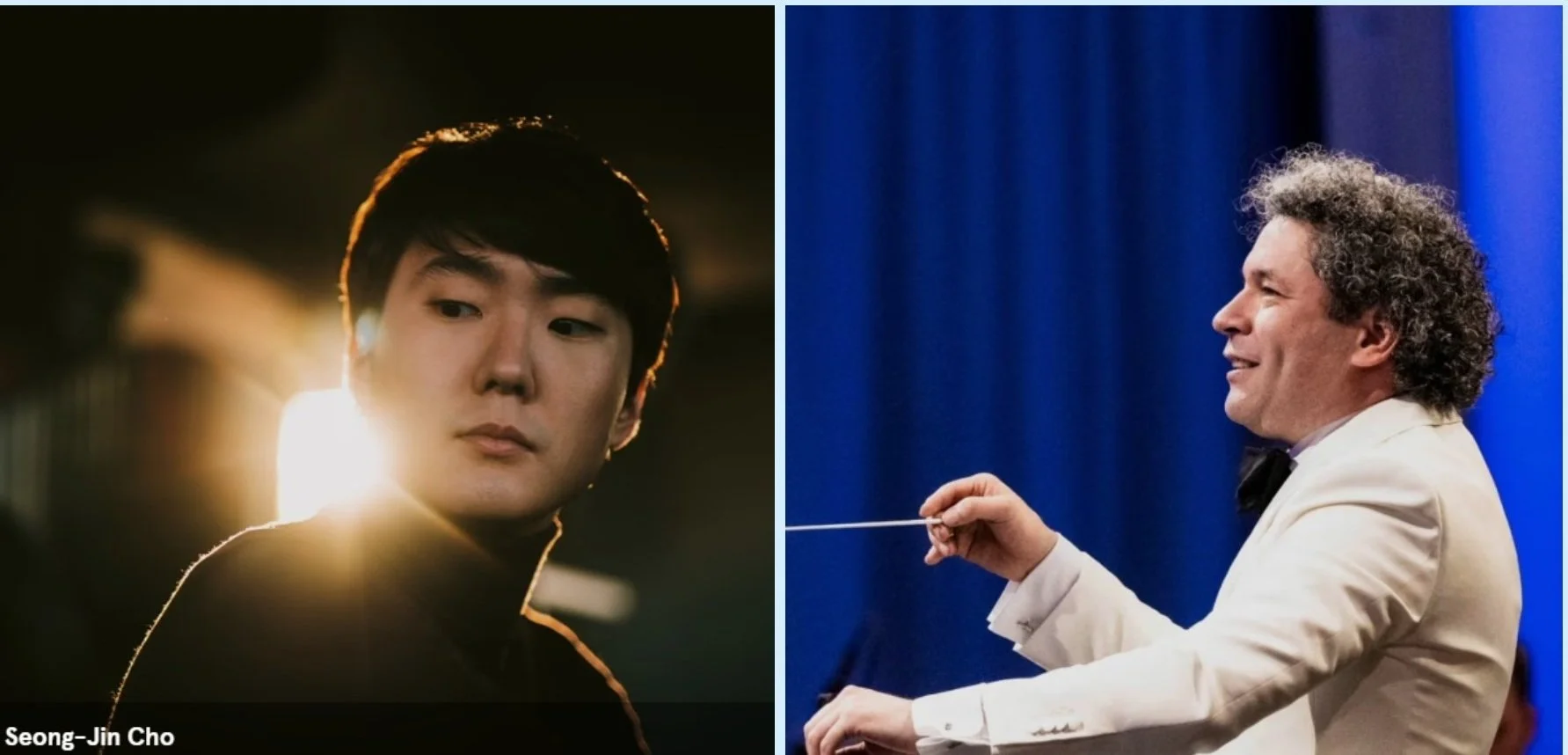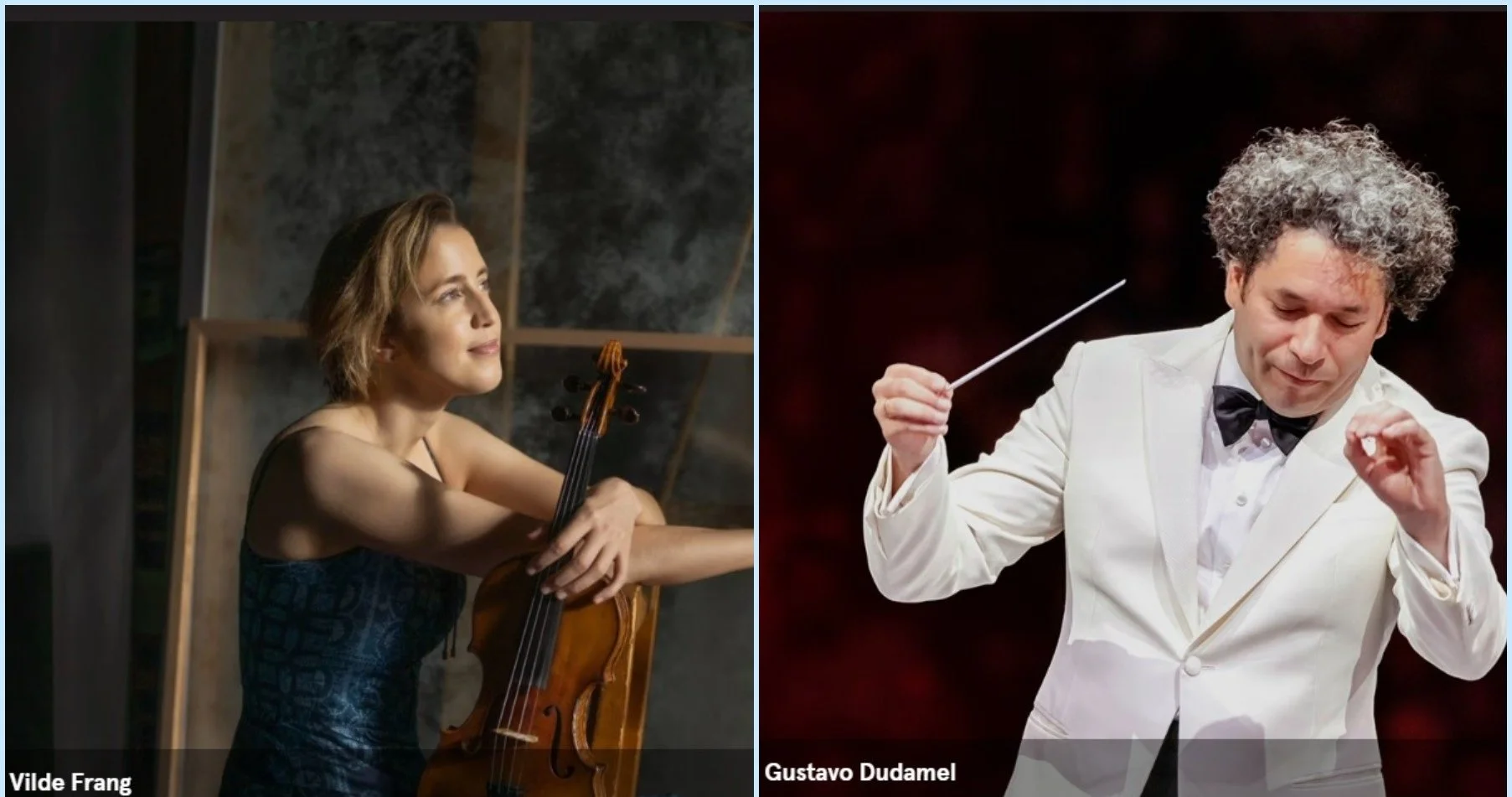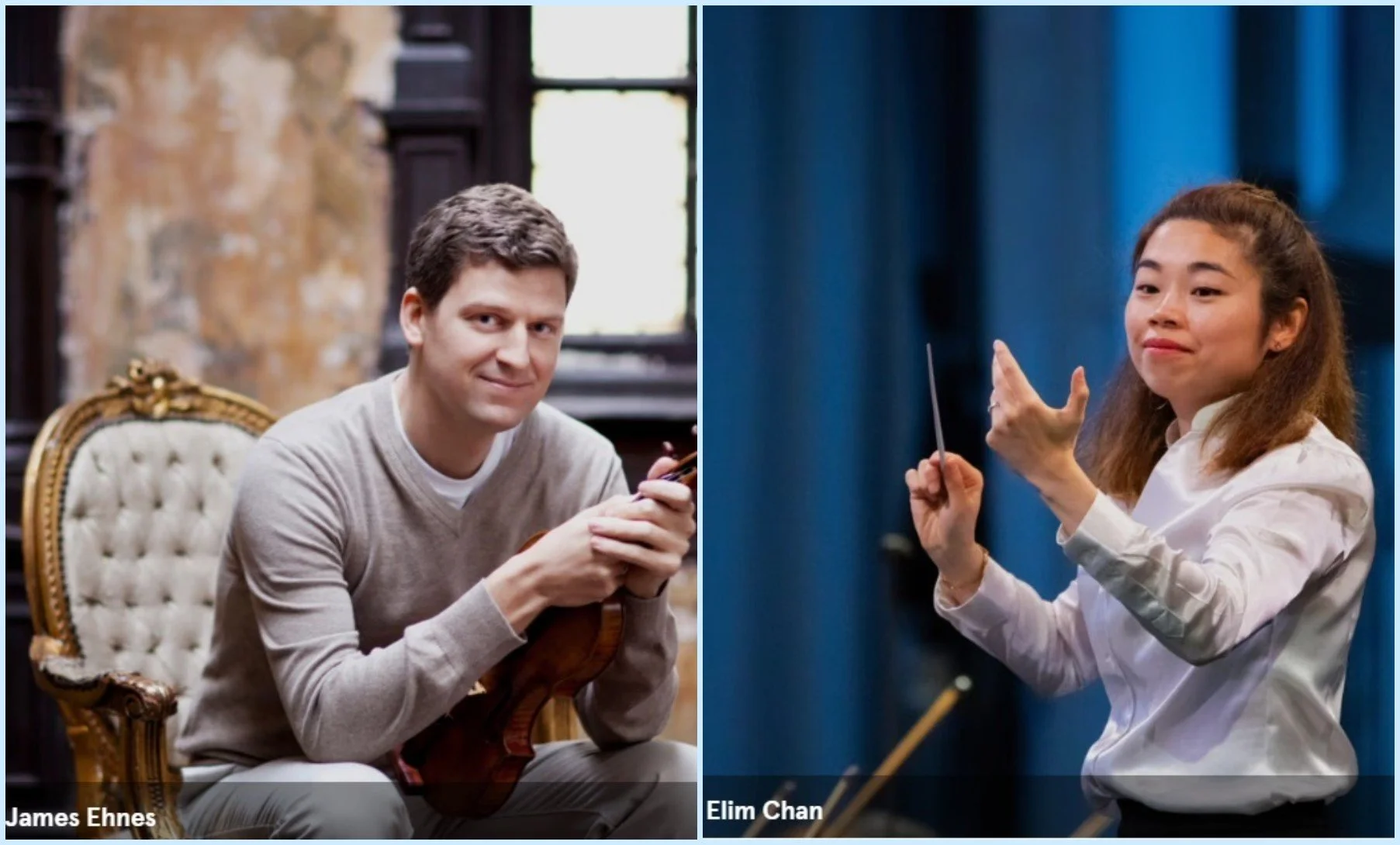Dudamel Returns in August, Russians, Ravel and All that Jazz
/By Truman C. Wang
8/17/2025
What happens when Duke Ellington's sophisticated jazz riffs meet Ravel's impressionistic palette? Tuesday night's LA Phil concert (August 5) provided a thrilling answer, with Gustavo Dudamel conducting his only two concerts of the summer, to a capacity audience. (In a side note, the politically controversial Simón Bolívar Symphony Orchestra was supposed to play two concerts this week but the travel ban in June on Venezuelans forced them to cancel.)
The crowd cheered Dudamel as he walked onto the stage, appearing rather stiff and awkward, unlike his normal jovial self. But when he struck up the band in the first work, Ellington’s Harlem, it was business as usual - energetic, vivid, colorful. One could call it a concerto for jazz band, with vignettes of life in the 1930’s Harlem, and an exciting, toe-tapping cadenza for the snare drums and bongo drums.
Korean pianist and Ravel specialist Seong-Jin Cho played two works by Ravel. The Concerto for Left Hand was mesmerizing in its fluidity and illusion of two-handed playing (the foot pedals taking the place of the right hand). His reading of the score was lyrical, at times whimsical and defiant, always in perfect dialog with Dudamel's supportive yet vibrant orchestral accompaniment. The G major Piano Concerto that followed showcased Cho's remarkable versatility. Here was jazz-inflected Ravel at its most playful, and Cho embraced every syncopated rhythm and blue note with infectious joy. The second movement's ethereal beauty provided a stunning contrast, with Cho's crystalline tone floating above the orchestra's gossamer texture.
Ellington's neglected masterpiece Black, Brown and Beige concluded the concert. Dudamel conducted this 45-minute suite with the passion of a true jazz band leader, drawing out every nuance from spiritual to swing. The LA Phil's jazz chops were on full display, particularly in the brass and woodwind sections, while never losing the symphonic grandeur that makes this piece so unique.
In Dudamel’s second concert of the week (August 7), Norwegian violinist Vilde Frang was the soloist in Korngold’s lush, film-score-worthy concerto, navigating its Hollywood romanticism with soaring grandeur and beauty. But it was Mahler's "Titan" that truly ignited the evening. The crowd’s cheers and catcalls did not stop for 2 minutes after Dudamel turned to conduct. Dudamel, clearly in his element with Mahler at this stage of his career, drew out every ounce of drama from the symphony's journey from pastoral dawn to triumphant finale. The orchestra responded with playing that was both muscular and nuanced—the mysterious opening emerged like morning mist, while the funeral march's sardonic wit landed with perfect timing. The brass section, rather uneven in this performance with many cracked notes, blazed in the finale's apotheosis. My friend who sat in a higher section complained about the crude and blaring amplified sound. It really is a hit or miss with these classical concerts at the Hollywood Bowl, and I am not sure there is a solution. One positive note was the English translation of the movement titles (“With powerful movement, but not too fast” for the Scherzo, and “Solemnly and measured, without dragging” for the funeral march)
The electronic gremlins continued to plague the sound in the next concert, on August 12. Elim Chan, from Hong Kong, has been a highly regarded guest conductor in LA and something of a Russian music specialist. But her concert was off to a rocky start, when, after the singing of the national anthem, a fleet of police helicopters and planes suddenly buzzed overhead (possible ICE action?) and hovered for 5 long minutes. After all the aerial excitement had subsided, we heard the first notes of Tchaikovsky’s D-Major Violin Concerto, in lush Romantic strings and old-school grand style. Chan conducted without a baton, but moved with precision, power and grace to cue the different instruments and mold the phrases. In a recent interview, Chan described herself as “Asian, female, petite” and often underestimated by people. I have seen her enough times to know her as a giant, more deserving of her accolades than many young conductors working today. Canadian violinist James Ehnes (now teaching at Indiana) was a superb technician and a lively interpreter, but he was let down by a glitchy sound system that interrupted his cadenza with loud pops and over-amplified sound. Things improved after intermission. Chan gave a stellar, highly atmospheric account of Britten's Four Sea Interludes, painting oceanic soundscapes so vivid you could practically taste the salt air. The LA Phil's brass section (in good form tonight, thankfully) absolutely thundered through the "Storm," while the strings whispered like gentle waves in "Moonlight." Stravinsky's Firebird Suite served as a brilliant finale, missing only the fireworks. All’s well that ends well.
Coming up in the rest of August: Russian pianist Daniil Trifonov, Japanese pianist Nobuyuki Tsujii, and Mozart Requiem.
Truman C. Wang is Editor-in-Chief of Classical Voice, whose articles have appeared in the Pasadena Star-News, San Gabriel Valley Tribune, other Southern California publications, as well as the Hawaiian Chinese Daily. He studied Integrative Biology and Music at U.C. Berkeley.




